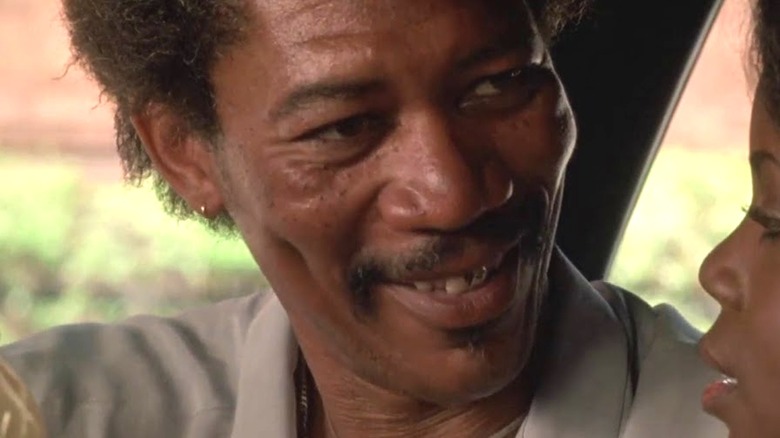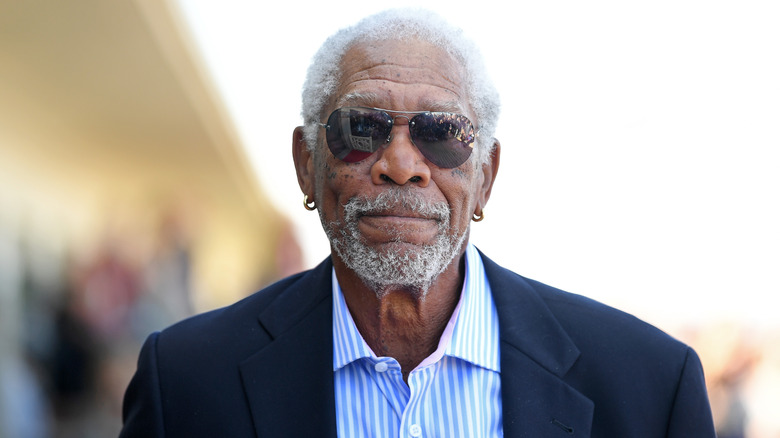Morgan Freeman's Favorite Performance Of His Is An '80s Gem
With critically acclaimed performances in films like "Glory," "Se7en," "Unforgiven," and Christopher Nolan's "Dark Knight" trilogy, there is no question that Morgan Freeman has achieved the upper echelons of A-lister. More impressive still is that he didn't get his breakthrough role until he was already middle aged, when he appeared in 1987's "Street Smart" at the age of 49.
Prior to "Street Smart," Freeman was perhaps best known for acting in PBS' "The Electric Company," a children's program on which he starred from 1971 to 1977. But he secured powerful, albeit small roles elsewhere. Indeed, it was his performance as a death-row prisoner in 1980's Robert Redford-starring "Brubaker" that inspired Pauline Kael to muse in the New Yorker, "Is Morgan Freeman the greatest American actor?"
Her suspicions were confirmed upon seeing "Street Smart" seven years later. "This is probably the first major screen role he's ever had," she continued. "And he turns a haphazardly written Times Square pimp into something so revealing that it's a classic performance." He earned his first Oscar nomination for the role.
Freeman himself also felt strongly about the performance, and he called it his favorite role of all time. Indeed, Freeman's Leo "Fast Black" Smalls is exhilarating in his unpredictability; one moment he's charming and affable, and the next he's volatile and violent. It was a far cry from his time spent singing educational songs to children, as well as any other role he would take in the ensuing 35 years. According to Freeman, that was by design.
Freeman wanted to avoid typecasting
"Street Smart" follows Christopher Reeve as Jonathan Fisher, an up-and-coming reporter in New York City. When he pitches a profile of a pimp, Fisher is unable to meet his deadline on time, forcing him to fabricate a story. The piece launches Fisher to journalistic stardom, but the parallels between the fake pimp and the real-life Fast Black are so similar that Fisher becomes vulnerable to subpoenas, intimidation, and violence.
In an interview with HitFix, Morgan Freeman called Fast Black his first "real role." The role was rewarding because it demanded him to act outside of himself. "I went as far away from me as I could get in terms of acting," he continued. "Everything else — you know — you pull something out of you. Not that I wasn't pulling stuff out of me in terms of my action with the ladies, but to me, it was more alien to who I really am."
That Freeman holds the role in such high esteem is notable considering his other Oscar-nominated performances in "Driving Miss Daisy," "The Shawshank Redemption," "Million Dollar Baby," and "Invictus."
If Fast Black feels like a singular character in Freeman's filmography, that's because he made a concerted effort to avoid typecasting. "I refused [to play more vicious men]," the actor told The Flashback Files in 2000. "As soon as you come out with something like that you get a lot of offers to play that same role again in other films. I didn't wanna be... If I'm good at something, I don't want to do that again, I want to do something else."

